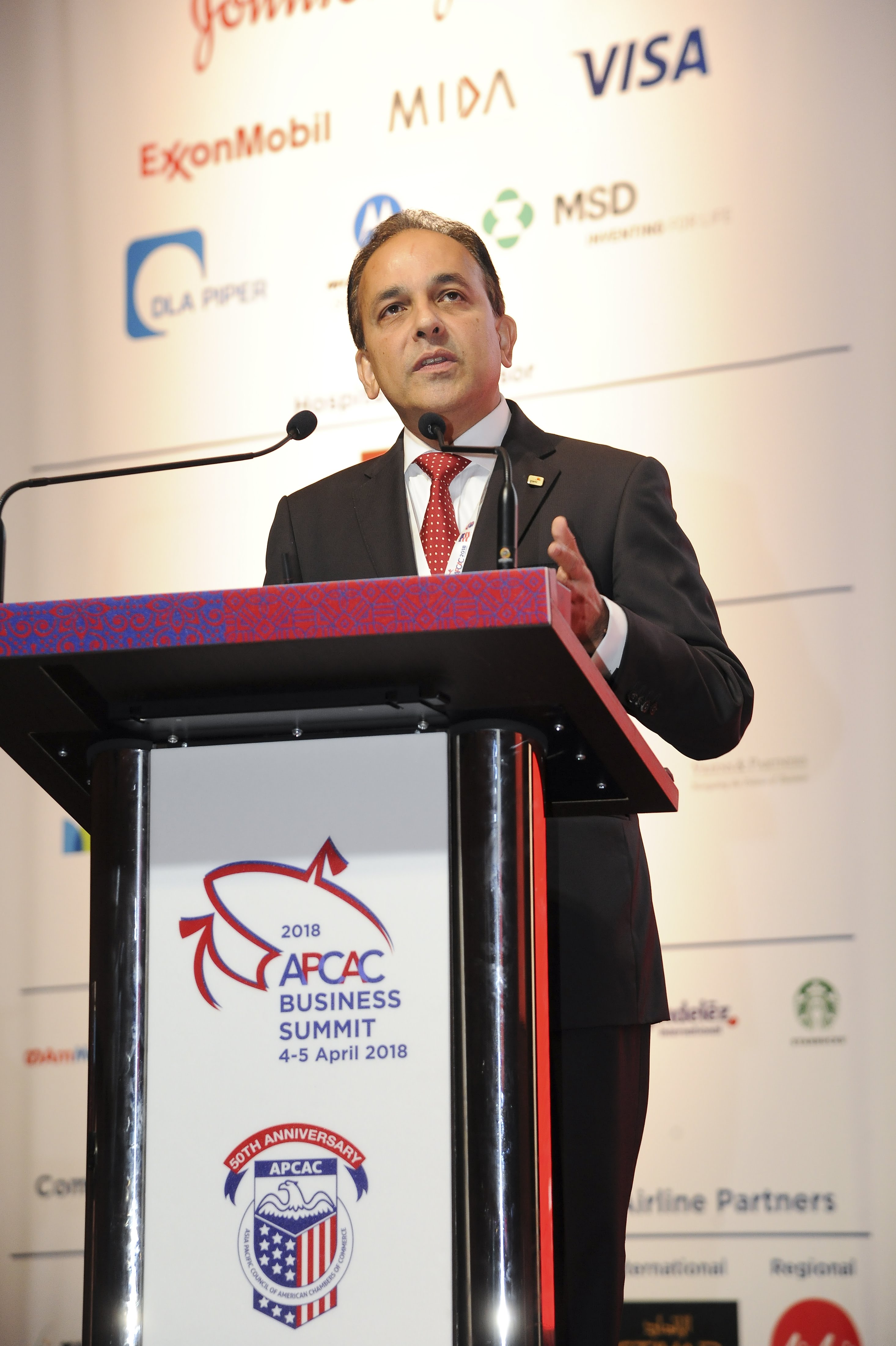The Asian Century, but which Asia?
The Asian Century, but which Asia?

Sridharan Nair, Managing Partner PwC Malaysia & Territory Senior Partner of the PwC SEAPEN Region had the privilege of delivering the first session of the Summit on the topic The Asian Century, but which Asia? What does the future hold and what are some things we need to ponder upon? There is a significant increase in infrastructure in the region driven by the nations themselves to support the growth of economies. Under China’s own Belt and Road Initiatives (BRI), there’s a significant amount of outbound infrastructure investment while India has a large construction boom that is happening. Although China’s BRI and government’s spending plans will support the robust growth, we expect some of these to run into implementation problems as they get into the construction stage.
Where do US businesses sit in this whole scheme? Are you represented and a participant as far as BRI is concerned? China is very aggressive with this plan, eyeing the high-speed rail project in Malaysia and other port projects in various parts of SEA. Are other nations sufficiently present and participating in these initiatives as well? Our view is that while China is a dominant player in the region and a large trade partner for many countries, this is not an absolute given.
The region is still open for business with anyone. There have been long historical relations with nations like the U.S. and the UK. There is no reason to suggest that nations will exclusively do business with one country as opposed to another. So, it is open for business. It is a question of how countries and businesses localise, look at works in the region, adapt and compete against one another to fulfill the potential in this region and broader Asia as well.
Ending with a quote from Jack Welch, GE former chairman, and CEO, Nair says Welch’s point is “You can’t reach a point of maturity when there’s so much potential with that sort of size and consumer needs and spending”.
Nair’s final remarks for international businesses on “How do they position themselves?”: They need to be patient enough to ride out the short-term socio-economic and political ups and downs that will inevitably occur in emerging markets as they move towards maturity.
So, patience is part of that and being able to localise and adapt. Failure to engage these markets because you are risk averse to these ups and downs will eventually mean you missed out on the opportunities where it is expected the bulk of the future economic growth in the world will come about.



